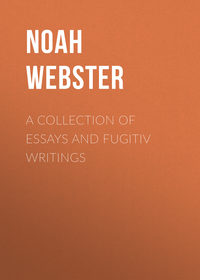Sadece Litres'te okuyun
Kitap dosya olarak indirilemez ancak uygulamamız üzerinden veya online olarak web sitemizden okunabilir.
Kitabı oku: «A Collection of Essays and Fugitiv Writings», sayfa 10
Bir şeyler ters gitti, lütfen daha sonra tekrar deneyin
Türler ve etiketler
Yaş sınırı:
12+Litres'teki yayın tarihi:
09 temmuz 2018Hacim:
526 s. 11 illüstrasyonTelif hakkı:
Public Domain